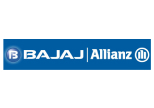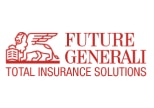Where Should You Invest For The Highest Returns?
Table of Contents
While selecting an investment avenue, you have to match your own risk profile with the associated risks of the product before investing. There are some investments that carry high risk but have the potential to generate higher inflation-adjusted returns than other asset classes in the long term while some investments come with low-risk and therefore lower returns.
Here is a look at 10 investment avenues Indians look at while saving for financial goals.

Best Investment Options With High Returns
The best Investment Options are as follows:
-
Direct Equity
Investing in stocks might not be everyone's cup of tea as it's a volatile asset class and there is no guarantee of returns. Further, not only is it difficult to pick the right stock, timing your entry and exit is also not easy. The only silver lining is that over long periods, equity has been able to deliver higher than inflation-adjusted returns compared to all other asset classes.
-
Equity Mutual Funds
Equity mutual fund schemes predominantly invest in equity stocks. As per current the Securities and Exchange Board of India (Sebi) Mutual Fund Regulations, an equity mutual fund scheme must invest at least 65 percent of its assets in equity and equity-related instruments. An equity fund can be actively managed or passively managed.
-
Debt Mutual Funds
Debt mutual fund schemes are suitable for investors who want steady returns. They are less volatile and, hence, considered less risky compared to equity funds. Debt mutual funds primarily invest in fixed-interest generating securities like corporate bonds, government securities, treasury bills, commercial paper and other money market instruments.
-
National Pension System (NPS)
The National Pension System is a long term retirement - focused investment product managed by the Pension Fund Regulatory and Development Authority (PFRDA). The minimum annual (April-March) contribution for an NPS Tier-1 account to remain active has been reduced from Rs 6,000 to Rs 1,000. It is a mix of equity, fixed deposits, corporate bonds, liquid funds and government funds, among others. Based on your risk appetite, you can decide how much of your money can be invested in equities through NPS. Read more about NPS.
-
Public Provident Fund (PPF)
Since PPF has a long tenure of 15 years, the impact of compounding of tax-free interest is huge, especially in the later years. Further, since the interest earned and the principal invested is backed by sovereign guarantee, it makes it a safe investment. Remember, interest rate on PPF is reviewed every quarter by the government. Read more about the PPF here.
-
Bank Fixed Deposit (FD)
A bank fixed deposit is considered a comparatively safer (than equity or mutual funds) choice for investing in India. Under the deposit insurance and credit guarantee corporation (DICGC) rules, each depositor in a bank is insured up to a maximum of Rs 5 lakh with effect from February 4, 2020 for both principal and interest amount.
-
Senior Citizens' Saving Scheme (SCSS)
Probably the first choice of most retirees, the Senior Citizens' Saving Scheme is a must-have in their investment portfolios. As the name suggests, only senior citizens or early retirees can invest in this scheme. SCSS can be availed from a post office or a bank by anyone above 60.
Take Away
Some of the above investments are fixed-income while others are financial market-linked. Fixed income and market-linked investments have a role to play in the process of wealth creation. Market-linked investments offer the potential of high returns but also carry high risks. Fixed income investments help in preserving the accumulated wealth so as to meet the desired goal. For long-term goals, it is important to make the best use of both worlds. Have a judicious mix of investments keeping risk, taxation and time horizon in mind.
Do read - A Savings Plan Is Essential For A Secure Future
Disclaimer: This article is issued in the general public interest and meant for general information purposes only. Readers are advised not to rely on the contents of the article as conclusive in nature and should research further or consult an expert in this regard.









































